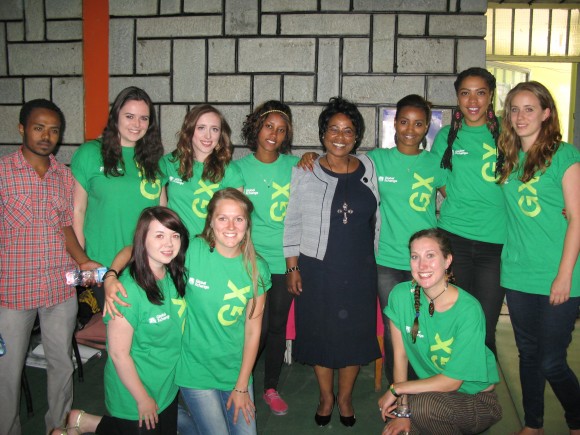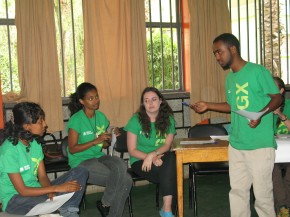
The Ethiopian population is approximately 35% Muslim and 65% Christian. While this kind of religious mix has caused bitter conflict in numerous countries around the world, the two faiths live in relative harmony here. My counterpart national volunteer, Hana, has two close friends who are Muslim, while she is Orthodox Christian. Although, she does admit that nearly all parents would strongly disapprove of their son or daughter marrying someone from another faith. There is some underlying tension between Protestants and Orthodox Christians too: Hana claims that many Orthodox parents would rather their child married a Muslim than a Protestant, and vice versa. Protestants loudly proclaim their faith in public, making statements such as "Jesus is the Lord", which appear unnecessary in a country where there are numerous other Christians who would not debate this point. An ironic Orthodox response is "Well he's not a carpenter…". Another key issue in Ethiopia is gender equality, which is why our Global Citizenship Day (GCD) team decided to focus on this. GCDs are a key element of VSO's Youth Action programme, and are organised by a sub-group to educate the rest of the team, as well as community members, about important global issues.

Our day was a great success, and included interactive activities, motivational speeches, debates and quizzes. I researched and organised a mock court case for the day, which was based on a real rape trial in Saudi Arabia, known internationally as the Qatif girl rape case. My research was shocking: I found that the victim was sentenced to six months in prison and 200 lashes due to her violation of various Saudi cultural codes at the time of the attack. Following international attention, a pardon was subsequently issued by Saudi King Abdullah. Addis itself equally still surprises me, as it is a city full of contrasts. High-rise buildings sit next to rows of ramshackle huts, while women in beautiful traditional dress walk alongside ladies clad in the height of western fashion. I have yet to decide whether seeing these more familiar influences, so far away from home, is comforting or saddening. Western, and particularly American, culture has, after all, infiltrated many areas of life here: it could be likened to a kind of neo-imperialism. Many young Ethiopians have unrealistic expectations about life in America, due to the scenes portrayed in films and television programmes here. I have heard some worryingly polarised opinions from teenage Ethiopians, in which the West is seen as enlightened, and Africa in particular is generally 'uncivilised', and a place that they, on the whole, cannot wait to escape from. Yet, as my time in Ethiopia comes to a close, I can't help reflecting on all the elements of life here that Ethiopians naturally take for granted, but which I will desperately miss when I'm home. The most important is certainly their warm, generous and sociable nature. They are an extremely tactile people, and I will certainly miss strolling down the streets with a protective arm around my shoulder. The importance of these qualities should in no way be underestimated: I think a bit more of this basic human kindness would improve life in the West no end.

Recent Comments